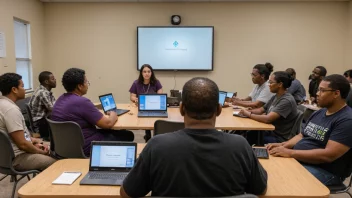In an increasingly interconnected world, the ability to read and write is more crucial than ever. Literacy is not merely a skill but a pathway to empowerment, enabling individuals to navigate daily life, pursue education, and engage with their communities. While schools play a vital role in teaching literacy, the influence of parents in fostering these skills at home is equally significant. This article delves into the multifaceted role that parents can play in supporting literacy development, offering practical strategies and insights into how they can create a nurturing environment for reading and writing.
Understanding the Importance of Parental Involvement
Research consistently shows that children whose parents are actively involved in their literacy development are more likely to perform better academically. This involvement can take many forms, from reading together to discussing books and encouraging writing. When parents prioritize literacy, they send a powerful message about its value, fostering a culture of learning that extends beyond the classroom.
The Impact of Reading Aloud
One of the most effective ways for parents to support literacy is through reading aloud to their children. This practice not only enhances vocabulary and comprehension but also strengthens the parent-child bond. Reading aloud exposes children to new ideas and perspectives, igniting their imagination and curiosity. Parents can choose a variety of genres, including fiction, non-fiction, poetry, and picture books, to keep the experience engaging and diverse.
Creating a Literacy-Rich Environment
Another vital aspect of supporting literacy at home is creating an environment that encourages reading and writing. This can be achieved by:
- Establishing a Reading Nook: Designate a cozy space filled with books, comfortable seating, and good lighting where children can read.
- Providing Diverse Reading Materials: Ensure access to a range of books, magazines, and newspapers that cater to the child's interests and reading level.
- Incorporating Technology: Utilize educational apps and e-books to make reading more interactive and appealing.
Encouraging Writing Activities
Writing is an essential component of literacy that often gets overshadowed by reading. Parents can encourage writing through various activities, such as:
- Keeping a Journal: Encourage children to write daily about their thoughts, experiences, and feelings.
- Writing Letters: Suggest writing letters to family members or friends, which can make writing feel more meaningful.
- Storytelling: Engage in storytelling sessions where children can create their own stories, either orally or in written form.
Promoting Discussion and Critical Thinking
Literacy is not just about decoding words; it’s also about understanding and interpreting information. Parents can foster critical thinking skills by discussing books and stories together. Asking open-ended questions such as, “What do you think will happen next?” or “Why do you think the character made that choice?” encourages children to think deeply and articulate their thoughts. This practice not only reinforces comprehension but also builds confidence in expressing ideas.
Modeling Literacy Behaviors
Children learn by observing their parents. When parents model positive literacy behaviors—such as reading regularly, discussing books, and writing notes—they demonstrate that literacy is an integral part of daily life. This modeling can inspire children to adopt similar habits, making literacy a natural and enjoyable aspect of their routine.
Utilizing Community Resources
Parents can also tap into community resources to enhance literacy at home. Public libraries often offer reading programs, storytelling sessions, and workshops that can enrich a child’s literacy experience. Additionally, community events such as book fairs and author readings provide opportunities for children to engage with literature and connect with other young readers.
Addressing Challenges and Finding Support
While parents play a crucial role in supporting literacy, it’s important to acknowledge that not all families have equal access to resources. Factors such as socioeconomic status, language barriers, and differing educational backgrounds can pose challenges. Parents facing such difficulties can seek support through local organizations, schools, and online communities that provide resources and guidance for literacy development. Collaborative efforts can help bridge gaps and ensure that all children have the opportunity to thrive in their literacy journey.
Celebrating Progress and Encouraging Lifelong Learning
Finally, celebrating progress is essential in a child’s literacy development. Recognizing achievements—big or small—can motivate children to continue their learning journey. Parents should encourage a love for reading and writing as lifelong pursuits, emphasizing that literacy is not a destination but an ongoing adventure. By fostering resilience and curiosity, parents can help their children become confident, capable readers and writers.
In conclusion, the role of parents in supporting literacy at home is both vital and transformative. By engaging in reading activities, creating a literacy-rich environment, encouraging writing, promoting discussion, and modeling positive behaviors, parents can significantly impact their children’s literacy development. Furthermore, by utilizing community resources and addressing challenges together, families can work towards ensuring that every child has the opportunity to become a skilled and confident reader and writer. Through these efforts, parents not only help their children succeed academically but also equip them with the essential skills needed to navigate the world with confidence and purpose.






